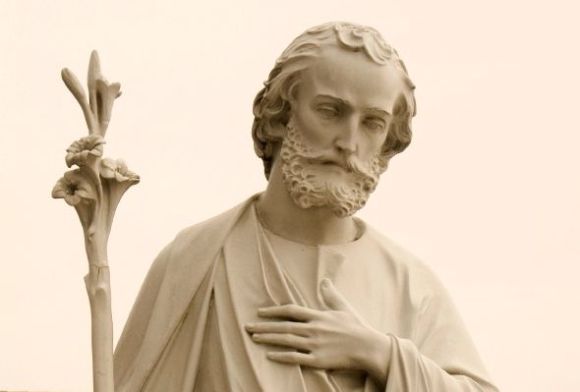
Twenty years ago, my friends, the McCurdys, offered me a blanket invitation: “Any time that you want to come over for dinner, just give us a call.” It’s an invitation that I’ve never forgotten. I wish I could describe the many wonderful dinners that I shared with them. But I can’t.
I can’t because the truth is that I never took them up on that invitation. This wasn’t because I didn’t want to have dinner with them. Indeed, I remember fondly a few dinners that I did share with them at their house. Good fun, great conversation, a warm home. I could have used more of those.
The reason that I wasn’t a regular at their family dinners had nothing to do with them. Rather, it was because in my youth I had internalized a rule that it wasn’t polite to invite yourself. And, even though they had made the invitation, simply calling up one day and saying, “I’d like to come have dinner with you tonight,” went against my programming. I couldn’t have done it without feeling rude, even if they had brought it upon themselves. This, though I knew that I might have unblinkingly offered someone the same hospitality, even if it might seem an imposition. Indeed, I remember about that same time, at a moment’s notice, driving a friend hours away to another state so that she could be with her family. I’ve always been grateful that she took the risk of asking, especially because at the time she was angry with me, and I might have been the last person she wanted to ask!
This was the year that I gave up that rule. It took being sent to a place where I didn’t really know anybody, to focus on a solitary task (my dissertation), in a rather isolating living situation (a community of 10 people living in four separate houses) to convince me. It took waiting for invitations to connect with new friends that came sparingly, if at all. It took being so disconnected with the things and the people around me that I could not thrive, for me to finally ask for help ridding myself of this rule, and many others that I’ve lived by, rules that have gotten in the way of being all that I want to be. I wasn’t just missing out on dinners. I wasn’t taking full advantage of the gift of my friends, even those I was closest to.
I’m now happy to say that I’ve moved to a more amenable location, and have put a lot more effort into “imposing” myself on my friends, and that has made a huge difference in all areas of my life. I’m a better friend, I’m a better person, and a better priest because of the ways in which they have responded. I spend more time on the phone than I’d like, because now I know I have to. I have to be careful not to get so caught up in my work that I fail to reach out to people. I’m coming to terms with the fact that I might not be the extrovert I thought I was, but maybe, as someone recently suggested, “an introvert, who compensates.” I’m still a work in progress.
Recently, I was preaching on the Gospel story of Zaccheus, the tax collector. And, it occurred to me that Jesus had broken the rule. Now, Jesus broke a lot of rules, but the one that I took notice of that day was in Jesus’ words to Zaccheus: “Come down, Zaccheus, tonight I’m going to dine at your house.” How rude of Jesus to invite himself to dinner! In my new frame of mind, I was compelled to see this story differently. What if Jesus had not invited himself? Zaccheus would have had a story to tell at dinner, sure, “I climbed a tree and caught a glimpse of Jesus today,” but—as the story tells us it does—salvation would not have come to his house! If Jesus had been “polite” in the way I had learned to be, such a great gift would not have been received! It has to make you wonder: What might people be missing out on, if we don’t invite ourselves into their lives?
This wasn’t the only instance in which Jesus invited himself to someone else’s house. It certainly is only one of many instances in which Jesus invited himself into another person’s life. He was certainly known to thrust himself upon others, even when they seemed unwilling! It was up to them to say “yes” or “no.” They still had the choice whether or not to allow it. Some happily allowed him into their lives. Some rejected him. And some went away sad, because other things in their lives—maybe some useless old rules—got in the way.
It seems to me that Christmas is a time, a wonderful time, when Jesus once again invites himself into our lives. It’s a time when we can reflect upon what those obstacles are—like those things in the Gospel that seemed to conspire against Jesus being born—to us more fully accepting the gifts of Jesus in our lives. Maybe they are material possessions. Maybe it is anger we are holding on to. Maybe it’s something that we finally need to admit that we need help with. Maybe it is just an old rule that doesn’t serve us anymore, or one that we might realize was never helpful, or true.
Is it time to allow Jesus to invite himself into our lives? Is it time to invite ourselves into someone else’s life, so that we might bring a little Christmas, the gift of Jesus into their lives?
I know that for me this year, as difficult as it began, is one that ends with a whole new appreciation of the gift of Christmas. I forced myself to be an imposition on my friends, and they did not disappoint in sharing their time, themselves, and their Jesus with me. Pray that I might continue to invite myself to be so blessed. Jesus doesn’t just invite himself into our lives at Christmas. He comes to us, and we to him in all kinds of invitations, whether we are on the giving or receiving end, or if we just invite ourselves. And while sometimes others may say “No, thanks,” Christmas holds the promise that Jesus always says, “Come!”
I hope you’ll invite yourself to experience Christmas in a whole new way, and may it be a blessed one. I am grateful for those of you who have allowed me to invite myself into your lives, or who have done the same for me. And for those I’ve yet to know, I look forward to dining at your house!

 Recently, a Jesuit friend expressed to me how helpful
Recently, a Jesuit friend expressed to me how helpful 





